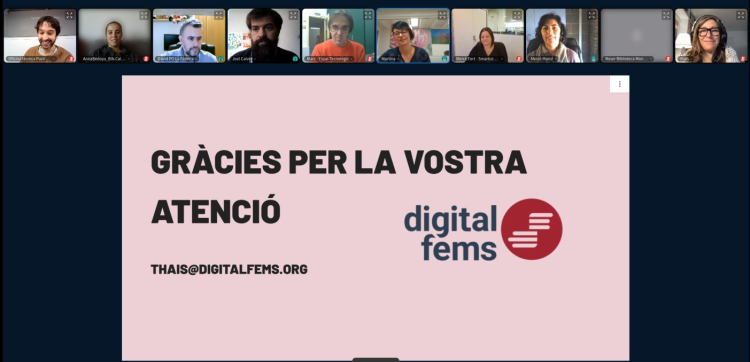Last Monday, November 20, the Xarxa Punt TIC held a virtual meeting on digital sexist violence. In total, twenty dynamic people participated in the online session, which included a presentation by the expert Thais Ruiz de Alda from DigitalFems, a non-profit organization that promotes the presence of women in technological environments, designing strategic plans and actions to generate inclusive policies, promoting scholarships and support programs for women technologists and preparing reports and data collection and analysis projects with a gender perspective.
Firstly, Thais Ruiz de Alda explained that until this year a global consensus had not been generated on digital sexist violence and that the UN, in its women's committee, had started to talk about technology, about women and digital violence, especially when thinking about women journalists, women politicians or women with a certain power. He then recalled that digital sexist violence was a reflection of sexist violence and the fact that it was digital usually amplified its incidence. He then listed some of them: cyberbullying, surveillance and monitoring, defamation, insults or discriminatory or derogatory expressions, threats, unauthorized access to equipment or social media accounts, breach of privacy, the manipulation of private data, impersonation or the non-consensual disclosure of personal information or intimate content, among many others. Next, she shared some self-defense strategies, such as care and risk analysis strategies or individual response prevention and reaction, and some digital resources, such as from FemBloc, from Acces Now, from Noctàmbules, from autodefensa.online, from the Institut Català de les Dones or from the Mossos d'Esquadra. Finally, Thais Ruiz de Alda concluded by insisting on the need to generate response channels and protocols to eradicate digital sexist violence and on the importance of promoting public awareness in order to achieve legislative rules that would allow for a safe Internet for to all and for all. Once the presentation was finished, a debate space was created, where the facilitators shared opinions and feelings.



